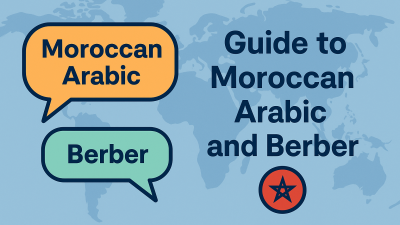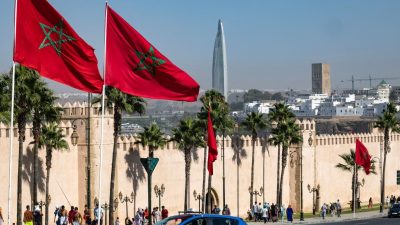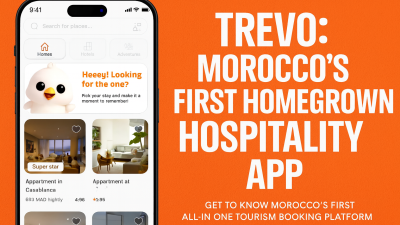Let’s be honest — visiting Morocco and actually living there are two totally different experiences. That first trip feels magical: the mint tea, the call to prayer echoing through ancient medinas, the tiled courtyards, the souks that seem to never end. But what happens when the vacation ends and life begins?
If you’re planning to move to Morocco in 2025 — or you’re wondering what living there full-time is really like — this guide is for you. Let’s break it down side-by-side so you know exactly what changes.
1. From Airbnb to Bureaucracy
As a visitor:
- You book cute riads, hotels, or Airbnbs.
- You breeze through passport control and don’t need to think about local paperwork.
- You just… enjoy.
As a resident:
- You’ll need a long-term lease or a notarized rental contract.
- You’ll be collecting passport photos, photocopying your ID, and sometimes even translating and notarizing documents.
- Expect to visit the local police station, city hall, and immigration office (more than once).
This shift from tourist to resident becomes clear real fast — usually within the first 30 days.
2. From Café Tagines to Grocery Lists
As a visitor:
- Every meal is a discovery. You’re trying lamb tagine, sipping mint tea, and dining in beautiful cafes.
As a local:
- You’ll start shopping in souks for fresh produce, spices, and daily bread.
- You’ll visit supermarkets like Carrefour, Marjane, or Acima.
- Cooking at home becomes the norm. And yes — Moroccan breakfast? Mostly bread, olive oil, and tea.
Daily eating habits change. You’ll still enjoy couscous Fridays or a fancy meal out… just not every day.
3. From Tours to Real-World Transportation
As a tourist:
- You rely on taxis, private drivers, or guided day trips.
- Walking through the medina feels like a magical maze.
As an expat:
- You’ll likely download inDrive or use grand taxis to get around.
- You’ll learn the local bus schedule… or realize it’s sometimes easier to just walk.
- Summer heat is no joke. Walking during 40°C afternoons? Not fun.
Transportation becomes less romantic, more functional. You’ll still explore, but now it’s more about efficiency than adventure.
4. From “Everyone Speaks English” to Darija Realities
As a tourist:
- Hotel staff, tour guides, and many shopkeepers speak English.
- Locals are patient with your language gaps.
As a resident:
- You’ll need at least basic Darija or some French to get through things like:
- Talking to your landlord
- Visiting the doctor
- Dealing with utilities or city offices
The deeper you go into local life, the less English you’ll hear. That’s not a bad thing — it just means it’s time to brush up.
5. From Carefree Spending to Budgeting Like a Local
Here’s a rough comparison of what you’ll spend as a visitor vs what locals typically pay:
| Item | Tourist Price (USD) | Resident Price (USD) |
|---|---|---|
| SIM card (10GB) | $10 | $3–5 |
| Café breakfast | $4–5 | $1.50–2.50 |
| Monthly groceries | — | $100–180 |
| Apartment rent | $600+ (Airbnb) | $250–500 (local lease) |
Once you live here, you’ll learn the local prices — and where to shop smart.
6. From Rose-Colored Views to Real-Life Challenges
Living in Morocco isn’t all mint tea and mosaics. It’s rewarding, but not without its obstacles:
- Things move slowly. Paperwork takes time. Appointments may be rescheduled. Patience is your best asset.
- Not all infrastructure is digital. You’ll be dealing with paper forms, cash payments, and face-to-face bureaucracy.
- Healthcare is good, but not always simple. You may need to visit several clinics to find a doctor who speaks your language.
But with those challenges come huge upsides:
- Strong community values
- Safe neighborhoods
- A slower, richer pace of life
- Warm social culture
What Other Expats Say
“Living in Morocco is beautiful, but slower — patience is key.”
“Tourists see the rose-colored version; real life is a mix of charm and challenge.”
“It’s affordable and safe, but the bureaucracy is real.”
You’ll hear these things echoed by most long-term expats. The more you lean into it, the more you’ll enjoy the ride.
Final Thoughts: Should You Make the Move?
If you fell in love with Morocco during a vacation, that’s not a fluke — the country is genuinely captivating. But living here adds a layer of reality. It’s not better or worse — just different.
Instead of taking everything in as a guest, you start participating. You build relationships. You get to know the rhythm. And yes, you’ll deal with paperwork, get frustrated at the post office, or overheat in July.
But you’ll also build a life — a real one. And that’s worth everything.
FAQs: Living in Morocco vs Visiting
Q1: Is Morocco still affordable once you move there?
Yes, especially if you rent locally, cook at home, and avoid tourist-priced experiences.
Q2: Can I live in Morocco without speaking French or Darija?
You can survive, especially in tourist areas. But learning the basics is a must for long-term comfort.
Q3: What’s the biggest culture shock for new residents?
Most say it’s the slower pace of bureaucracy and the reliance on in-person visits and paper documents.
Q4: Is healthcare reliable for expats?
Yes, especially in larger cities. Private clinics are affordable, but language barriers can exist.
Q5: Do most expats stay long-term?
Some do, others don’t. The ones who stay are usually the ones who come with patience, adaptability, and an open mind.
Ready to go from visitor to resident? Morocco is waiting — and it’s got a whole new side to show you.


